If you have had the Roux-en-Y gastric bypass (RYGB) in the past and you have experienced severe complications or not met your weight loss goals…. Then you might be wondering if there are other options out there for you!
This article is going to go in depth about the idea of having a gastric sleeve after you have had RYGB.
What is the Roux-en-Y gastric bypass (RYGB)?
RYGB is a form of bariatric surgery that alters the size of your stomach and the length of your small intestine.
In short, this procedure involves the creation of a small gastric pouch, about the size of an egg, by stapling off the upper section of the stomach and then attaching it to a part of the intestine called the roux limb.
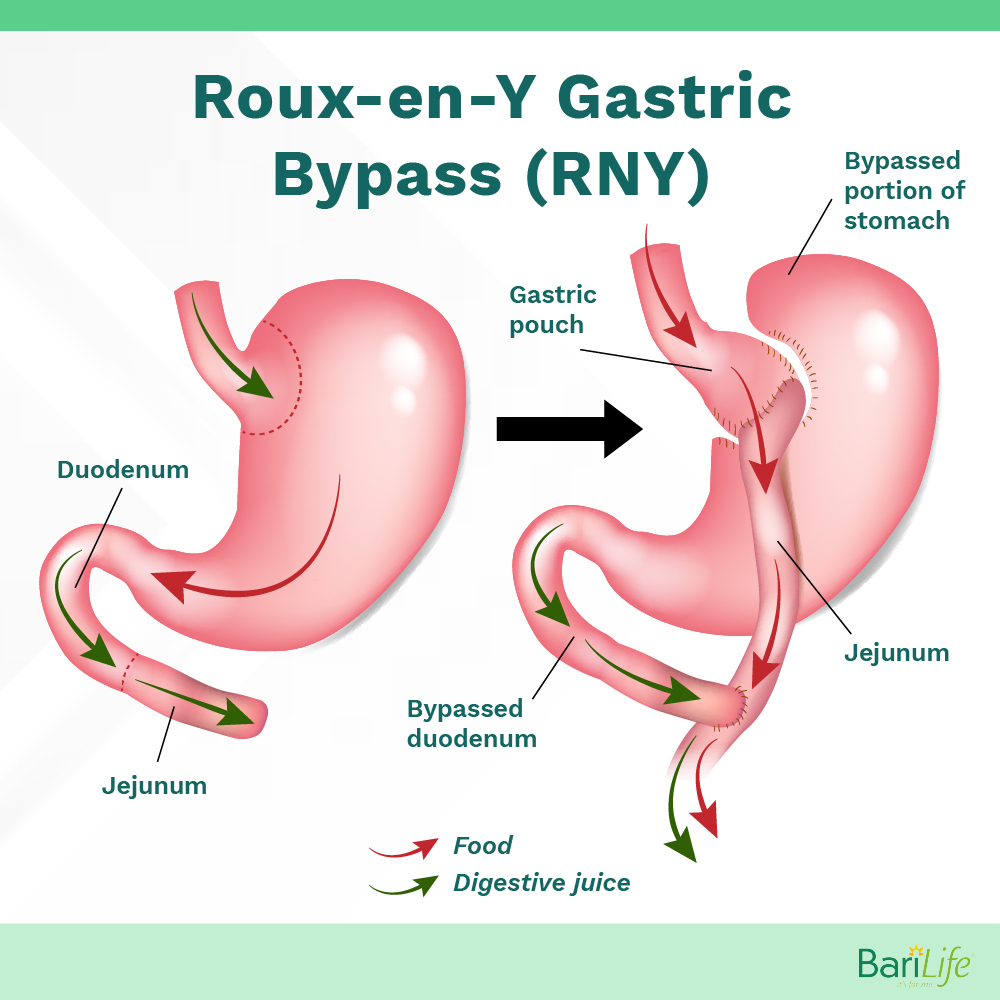
This procedure promotes weight loss by reducing the size of the stomach and reducing the amount of nutrients absorbed by the shortening and rerouting of the intestines.
Why would I need a gastric sleeve after RYGB?
As bariatric surgery has become more common, the need for revisional surgery has also become more apparent.
The idea of performing a sleeve gastrectomy on someone who previously had a RYGB is relatively new. In 2016 a grand total of 39 people had this procedure with their results published in scientific journals. So, the research related to this procedure is pretty slim but it’s still helpful in determining the safety and effectiveness of this procedure.
The RYGB to sleeve gastrectomy was introduced as a solution for someone looking to reverse the RYGB.
So you might be wondering, why would I reverse my RYGB?
That’s a great question! Reversal of the RYGB is primarily used as a treatment for SEVERE complications.
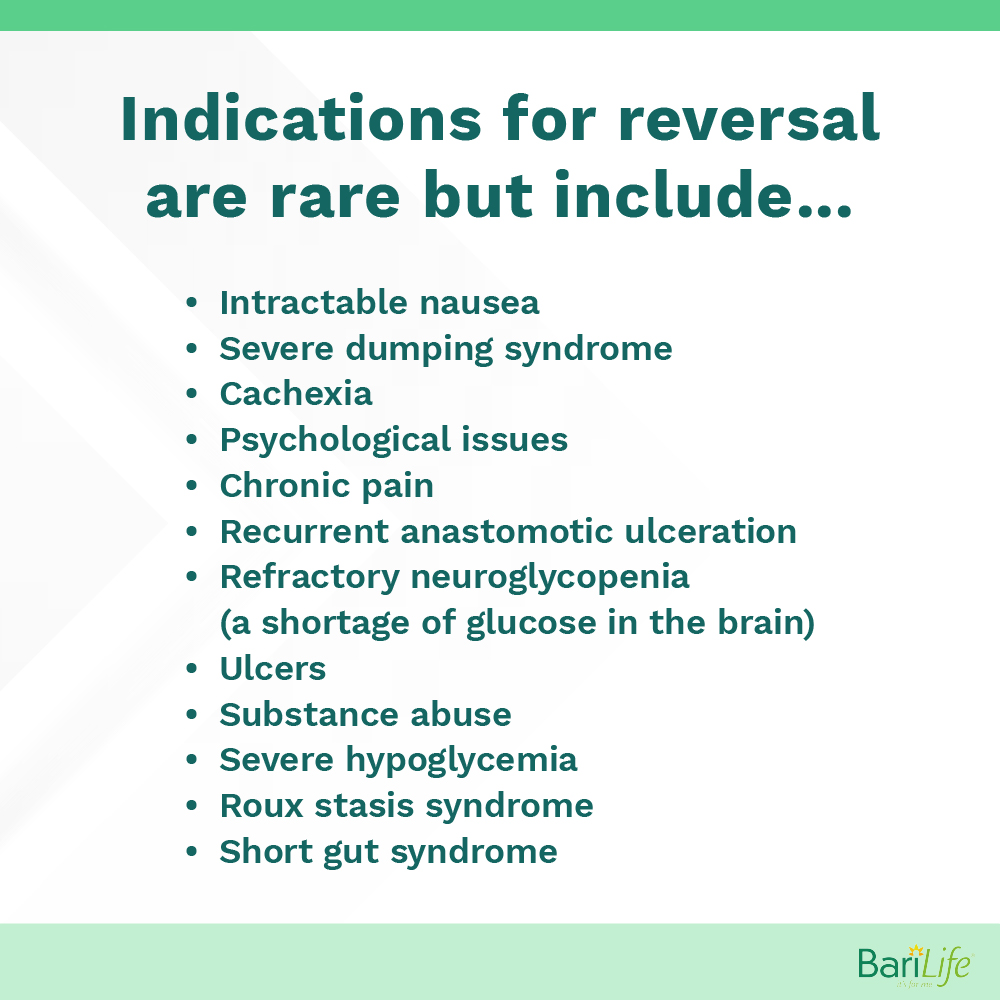
Indications for reversal of RYGB are extremely rare and they include…
- Intractable nausea
- Severe dumping syndrome
- Cachexia
- Psychological issues
- Chronic pain
- Recurrent anastomotic ulceration
- Refractory neuroglycopenia (A shortage of glucose in the brain)
- Ulcers
- Substance abuse
- Severe hypoglycemia
- Roux stasis syndrome
- Short gut syndrome
How do you convert from RYGB to gastric sleeve?
Normally the reversal of the RYGB involves converting the gastric pouch and the rerouted intestines into “normal” anatomy. A study published in Surgical Endoscopy explains this procedure in detail.
In the simplest terms possible, this reversal of the RYGB to normal anatomy involves sewing the gastric pouch back into the remnant or remaining part of the stomach. This process also involves rerouting the intestines back to their original track.
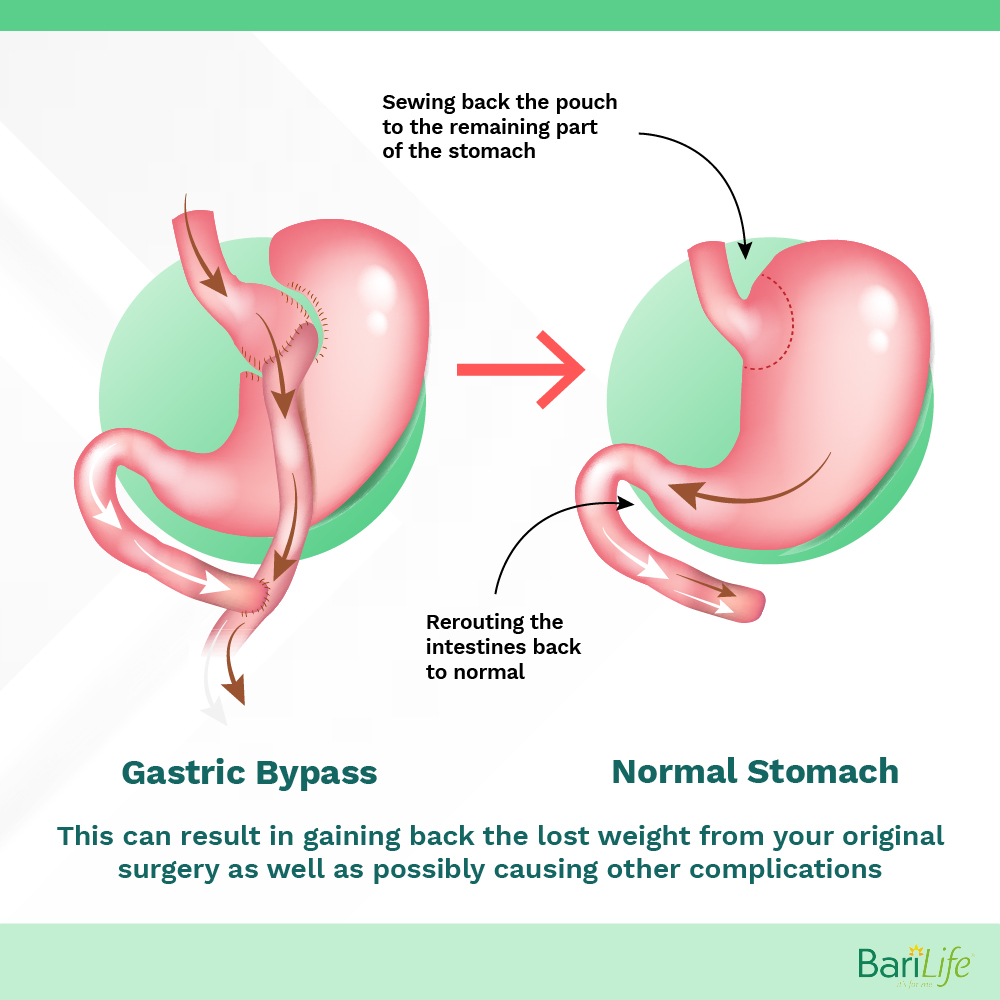
There is little research evaluating weight gain after reversal of RYGB, however it is known that many patients regain much of the weight they lost after reversal of other bariatric procedures. Reversing the RYGB and reintroducing normal anatomy could result in weight gain and unwanted health complications. Therefore reversal to normal anatomy should be undertaken cautiously.
Surgeons have been looking for alternative solutions to this procedure. The conversion to sleeve gastrectomy as opposed to normal anatomy is being evaluated as an alternative solution.
When reversing the RYGB to the gastric sleeve, the greater curvature of the stomach is removed during the surgical process. The removal of the greater curvature is known to reduce the amount of food that you can eat following surgery and alter hormones related to hunger.
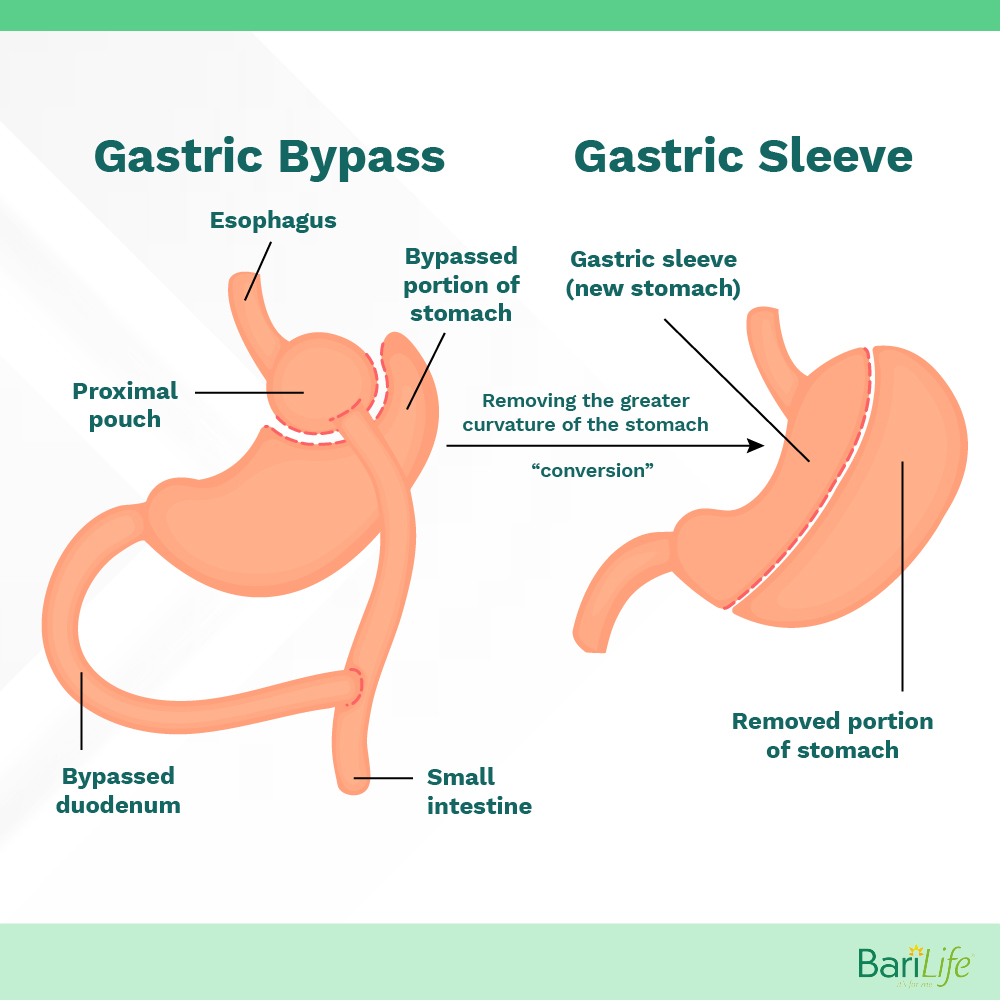
Conversion from RYGB to SG is a method that was proposed to reverse RYGB without associated weight gain.
What are the benefits of the RYGB to Gastric Sleeve?
This procedure has two primary benefits:
- To fix or treat serious complications related to RYGB
- To promote weight loss for previously unsuccessful weight loss or weight regain
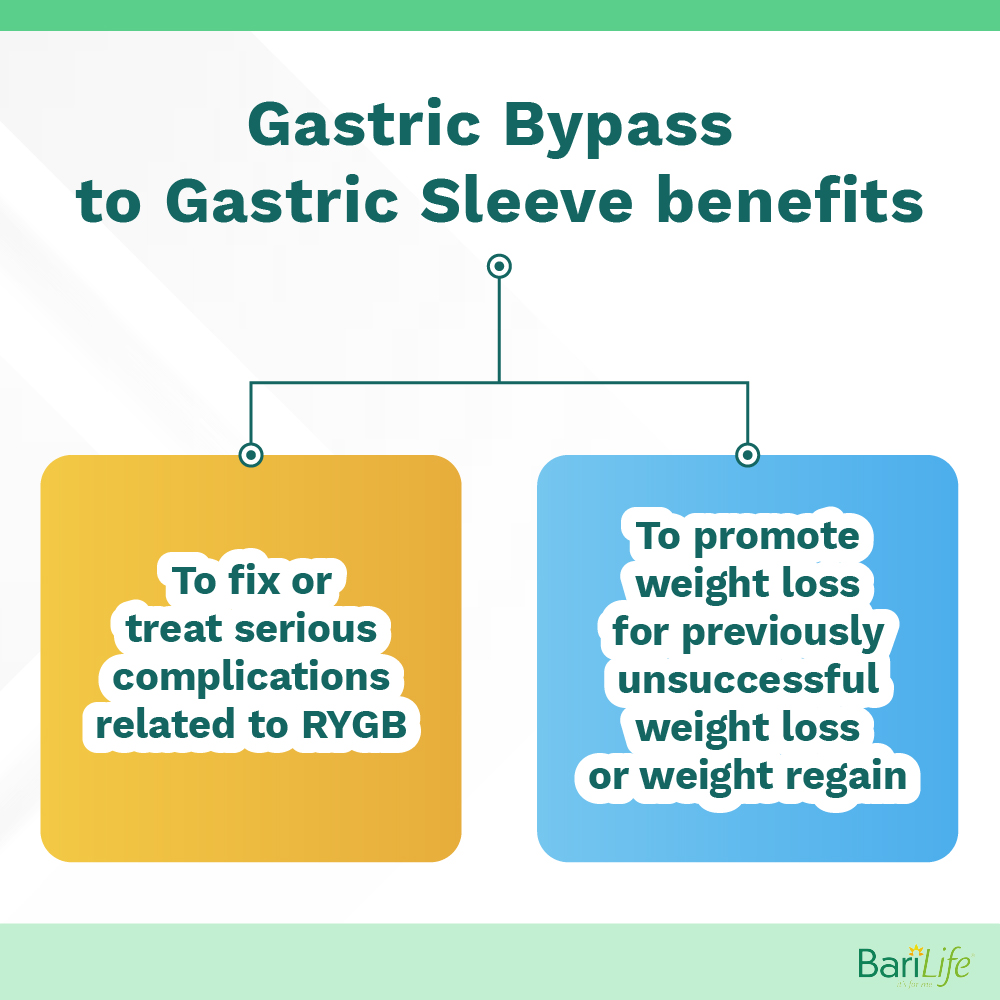
Treatment of serious complications related to RYGB
A 2-year study conducted from 2012-2014 evaluated 12 patients who underwent conversion from RYGB to gastric sleeve due to severe complications from RYGB. These complications included marginal ulcer, gastric fistula, hypoinsulinemic hypoglycemia, dumping syndrome, and weight gain. This study found that 11 out of the 12 patients had successful resolution of the complication prompting revisional surgery.
Although this procedure is reported to successfully resolve certain complications, it has very high rates of major complications and readmission.
Weight loss
A study published in 2011 evaluated 4 patients with unsuccessful weight loss after having the RYGB. These patients underwent conversion to sleeve gastrectomy and reported 59.3% excess weight loss after the conversion.
The 2-year study conducted above also evaluated weight loss results in 5 morbidly obese patients and found that they had 30.1% excess weight loss after the conversion.. However, the purpose of the study was to resolve specific complications, not to analyze weight loss so there is no information on long-term results.
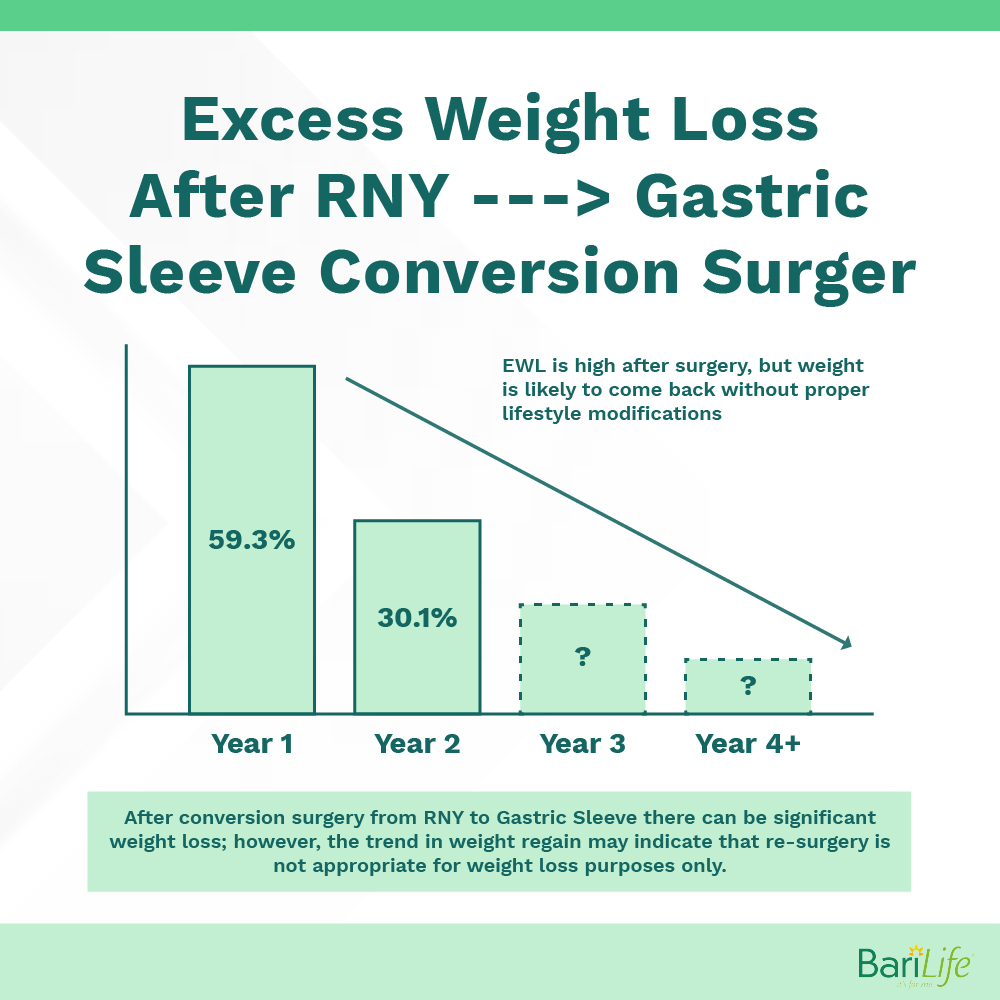
The results of these studies may make the conversion from RYGB to the gastric sleeve seem ideal, especially if you have had inadequate weight loss or have regained weight.
However, some studies advise against converting from RYGB to SG for failed weight loss.
It’s important to note that weight regain following RYGB can be related to a number of factors including technical failures or dietary behavior. High consumption of sweets or junk food, too large of meals, or frequent meals may cause the gastric pouch to stretch after RYGB and/or prevent weight loss following RYGB.
Inadequate weight loss or weight regain following RYGB should be treated with a multidisciplinary approach such as diet, exercise, consultations with behavioral therapists and physicians.

The rate of complications and the severity of complications associated with converting from RYGB to gastric sleeve are high and can be severe. As a result of those risks, gastric bypass surgery isn’t usually redone if you regain the weight as a result of poor diet and exercise habits.
So now you might be wondering…
What are the complications of RYGB to GS procedure?
The conversion from RYGB to sleeve gastrectomy has been reported to promote the successful resolution of certain complications of RYGB but… This procedure has a high rate of postoperative complications.
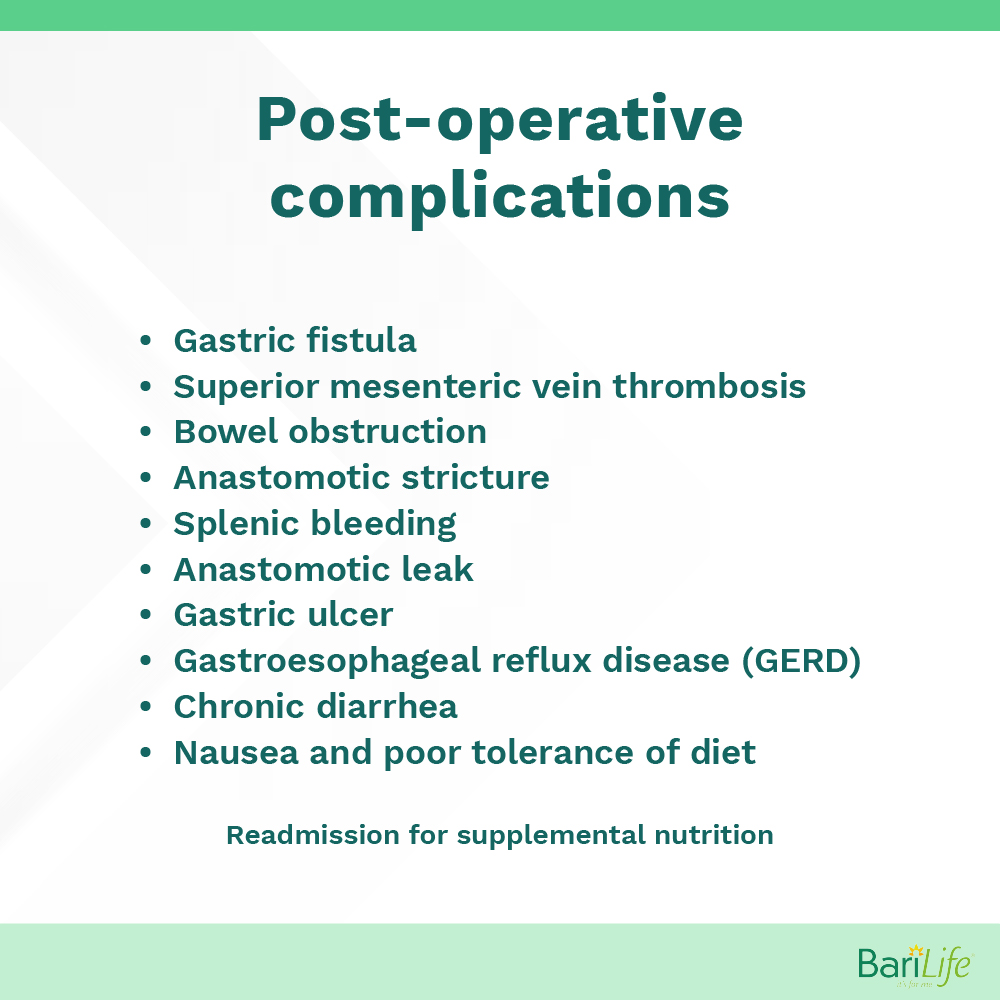
These complications include:
- Gastric fistula
- Superior mesenteric vein thrombosis
- Bowel obstruction
- Anastomotic stricture
- Splenic bleeding
- Anastomotic leak
- Gastric ulcer
- Gastroesophageal reflux disease (GERD)
- Chronic Diarrhea
- Nausea and poor tolerance of diet
- Readmission for supplemental nutrition
Revision of bariatric surgery is estimated to have higher rates of complications when compared to the initial surgery. The rate of complications is estimated to be anywhere from 21.8 to 23% and the rate of mortality or death following revision of bariatric surgery is about 1.3%.
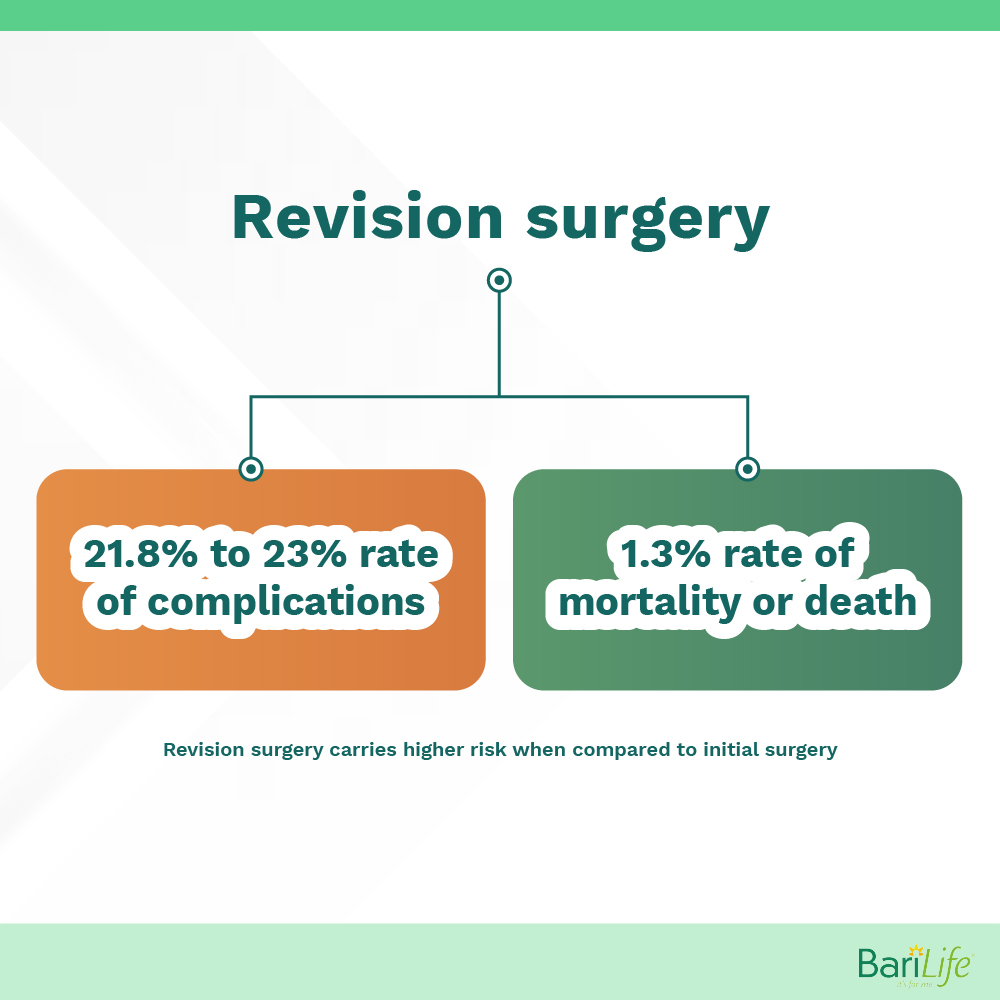
A study conducted by surgical endoscopy evaluated 20 people who had reversal of the RYGB. Of the 20 patients, 10 had a reversal to normal anatomy and 10 had conversion to the sleeve gastrectomy.
Of the normal anatomy group, only 2 people experienced significant complications. These complications included a leak and an episode of bleeding that required reoperation.
Of the sleeve gastrectomy group, 4 people experienced significant complications, including 3 leaks and 1 ulcer.
In this study, the conversion to sleeve gastrectomy proved to be a more difficult procedure and lead to more significant complications.
Is it worth it?
Overall this is a complicated procedure with little research to support it. When considering this procedure much thought is recommended prior to diving in.
Research shows that the conversion from RYGB to sleeve gastrectomy has promising results when it comes to resolving severe complications and preventing short-term weight gain. However, the conversion has a high rate of major complications, as well as, a high rate of readmission and need for supplemental nutrition.
Although the conversion to SG may be appropriate in carefully selected patients, other options for patients with severe chronic complications after RYGB should be considered. If you are considering this procedure for weight loss, you need to evaluate other options and work with a team of medical professionals to try and achieve weight loss without a complicated procedure.




Thank you for your help!
You’re most welcome! We are happy to help. 🙂